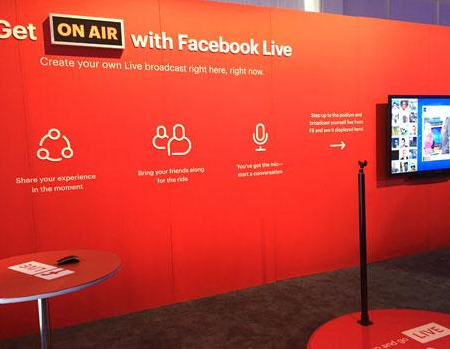As Ad Blockers Gain Traction, Targeted Messaging Falls Short
An Accenture study finds that online ads are unpopular with most consumers, while ad-blocking tools are making it easier than ever to tune out unwanted messaging. How are you supposed to promote your brand?


Facebook F8: AI, Future Of Apps On Display
Facebook F8: AI, Future Of Apps On Display (Click image for larger view and slideshow.)
Most consumers dislike online ads, and many are aware of tools that can deal with the problem, a finding that global business consultancy Accenture said threatens the digital advertising industry.
In a survey of 28,000 consumers across 28 countries, Accenture has found widespread disenchantment with digital advertising. Accenture is releasing its findings in conjunction with the National Association of Broadcasters Show, April 16-21 in Las Vegas.
About 84% of respondents said ad interruptions are too frequent. Some 73% said ad interruptions do not address their personal interests. Some 61% said they were aware of ad-blocking options.
About 42% of consumers say they'd pay to eliminate ad interruptions, which bodes well at least for subscription-based online business models.
For advertisers, the glass could be either half-full or half-empty: Half of respondents said they're interested in ads if those ads meet their interests.
Identifying those interests becomes a challenge, however, when consumers don't trust advertisers and consequently don't share information about their interests. That's why Facebook's Mark Zuckerberg, among others, has made it a habit to encourage people to share content online. Without behavioral data to mine, the ads get even less relevant to the consumer, and ad blocking looks more appealing.
The survey does not contemplate the flipside of the coin: what it means when half of those surveyed express disinterest in ads, targeted or otherwise.
In a phone interview, Gavin Mann, Accenture's global broadcast industry lead, said that his firm conducts media and technology research every year, but that it didn't set out specifically to examine ad blocking. "The most interesting statistics are around ad blocking because the numbers are high," he said.
The Internet Advertising Bureau has called ad blocking "a potentially existential threat to the industry." It blames "unethical technology companies seeking to divert ad spending into their own pockets," a reference to firms like Eyeo, maker of Adblock Plus, and browser maker Brave Software, both of which see demand among consumers for moderating ad industry excesses.

Are you prepared for a new world of enterprise mobility? Attend the Wireless & Mobility Track at Interop Las Vegas, May 2-6. Register now!
The ad industry has been slow to recognize its own role in the growing distaste for ads. Online ad networks remain a source of malware. The ads themselves make Web pages load more slowly while they take up unnecessary bandwidth. Advertisers generally use ad-tracking technology without adequate notice and consent from consumers.
According to Mann, the ad industry's focus on external threats such as ad blocking represents a normal response to the challenge advertisers are facing. "The incumbent players should defend their position while exploring new opportunities."
Despite evident disinterest in advertising from about half the public, he is optimistic. "I hope it comes across very much that the glass is half full," he said, noting that advertising has been part of the media ecosystem for decades. He said he expects advertising will remain a part of the media ecosystem, and that it will become less intrusive to avoid alienating mobile device users.

About the Author(s)
You May Also Like
How to Amplify DevOps with DevSecOps
May 22, 2024Generative AI: Use Cases and Risks in 2024
May 29, 2024Smart Service Management
June 4, 2024







